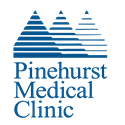March 14th, 2023

Taking the First Steps: Starting Your Nutrition Journey Towards a Healthier You
By: Lynsi Beers, RD, LDN, registered dietitian
We hear it all the time: eat healthily, get more fruits and vegetables into your daily diet, and food is fuel. While all of that is good advice, it can be a daunting task knowing where to start your nutrition journey.
Nutrition provides the nourishment and energy our body needs on a daily basis that can only come from food. It is essential and can assist in living a healthy and fulfilled life.
So, where to start? Nutrition is something that varies from person to person, and a registered dietitian can help collaborate with you on goals that fit you and your lifestyle. Nutrition goals should move past performative health and be individualized to meet your actual needs. A registered dietitian is a healthcare professional that has gone through specialized training and passed standardized testing to obtain national credentials. Most states also require a state license for a registered dietitian to practice.
Registered dietitians support you through your nutritional journey. They do this through nutrition assessments, listening to your experiences with food, asking open-ended questions to ensure they are collaborating with you on your health goals, providing education and answering any questions you may have. It is important to note that a registered dietitian is not the food police. They are there to support and guide you to achieving your nutrition goals.
If you’re not sure of what your goals should be, start by asking yourself the following questions:
- How would I describe my relationship with food, exercise and my body?
- What previous experiences in my life are currently affecting my eating patterns?
- If I never worried about the size of my body for me to be my healthiest, what would my nutrition and exercise routines look like?
- What types of food and exercise do I enjoy?
- How are my current eating patterns serving me? How are they not?
Taking the time to reflect on your answers to these questions can help guide you when creating your nutrition goals.
After you have identified and created your goals, consider implementing these easy tips to improve your nutrition:
- Assess your relationship with food, exercise and body image before making any adjustments to your nutrition plan.
- Work on tuning into your hunger and fullness cues to practice intuitive eating.
- Plan a few meals and snacks for the week to ensure you have adequate nourishment available.
- Eat and hydrate consistently throughout the day.
- Eat a variety of foods from all food groups, and remember to include food that fuels your soul!
While it is important to have an awareness of what food goes into your body, it should not consume your thoughts. It is normal for meals and food to symbolize community, comfort, religion, culture, pleasure and celebrations. If you find yourself obsessing about food, it is important to discuss this with your primary care provider, a registered dietitian and/or therapist.
Lynsi Beers, RD, LDN, is a registered dietitian with Pinehurst Medical Clinic’s Wellness Department. This is a multidisciplinary team that is committed to improving its patients' overall health and well-being.
Back





